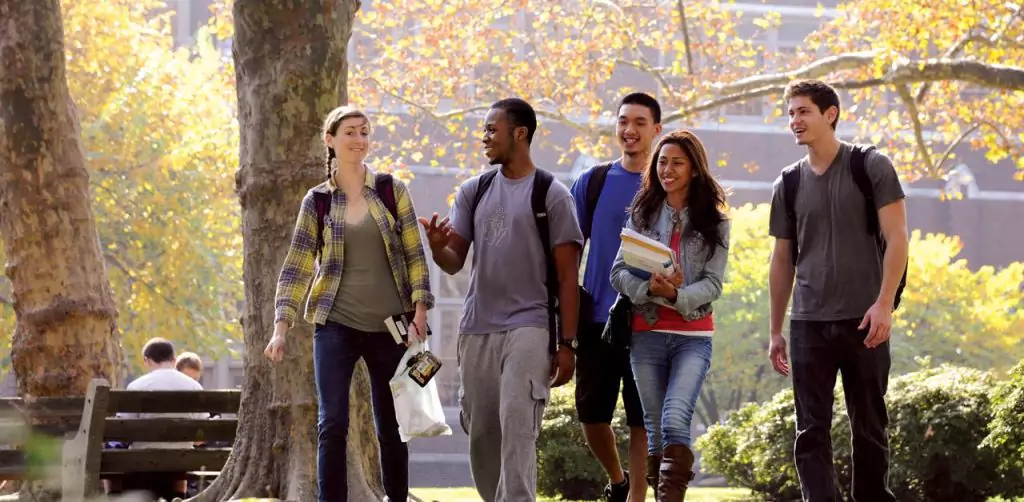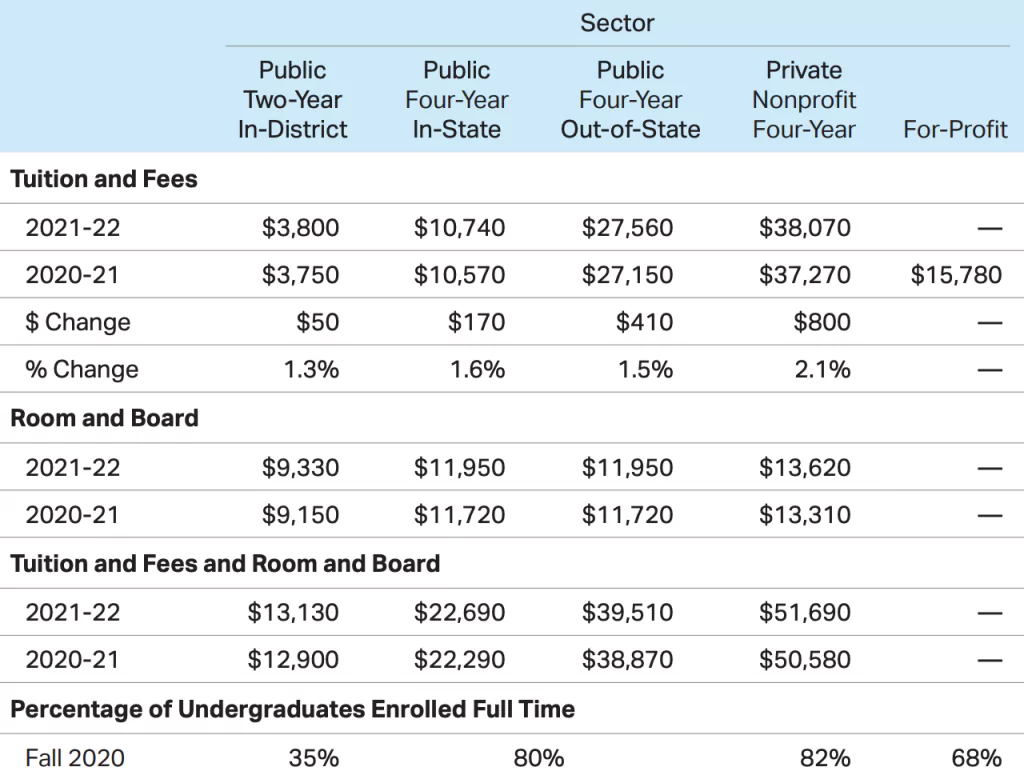The romanticized idea of feeling a “spark” or a deep connection during a college tour—knowing instantly that a particular institution is the perfect fit—is a compelling narrative. But how often does this truly occur? Historical accounts of individuals having their heart set on a specific college, pursuing that dream, and finding success are more the exception than the rule.

✅ AI Essay Writer ✅ AI Detector ✅ Plagchecker ✅ Paraphraser
✅ Summarizer ✅ Citation Generator
Key Takeaways:
- Many students feel pressured to find a “spark” when visiting colleges, but the reality of the experience varies widely.
- Opinions differ on whether this emotional connection is essential to a successful college experience.
- Practical considerations like affordability, program offerings, and location are key factors for many students.
- College counselors and expanding the range of considered schools may help decision-making.
The Myth of the “College Spark”
In today’s transforming world, the stakes are higher than ever before. With the explosion of new technological advancements, an ever-increasing variety of educational programs, and emerging positions in the job market, students face an overwhelming array of choices. This overload of options can make selecting the “right” college incredibly daunting. Gone are the days when a student might have one clear path or a single dream school in mind.
Moreover, the cost of making a “mistake” in this choice has become more consequential. The financial investment in a college education is significant, often leading to considerable student debt. Choosing the wrong program or school can lead to dissatisfaction and potential career setbacks. A wrong turn here can mean a lost opportunity there, especially in highly competitive fields where specific skill sets and network connections can make all the difference.
The pressure to find that magical spark is fueled by a societal narrative emphasizing the perfect match between student and institution. It often overshadows more practical, tangible considerations, such as academic offerings, financial feasibility, and long-term career prospects.

It is argued that the myth of the college spark might even be counterproductive, leading students to prioritize emotional connection over more substantive factors. Instead, a more nuanced and individualized approach that takes into account personal goals, financial situation, academic interests, and career aspirations might lead to a more satisfying and successful college experience.
In this complex landscape, the quest for the elusive college spark can feel like searching for a needle in a haystack. And the reality is that for many, that spark may not be the defining or even necessary factor in finding a fulfilling educational path. A rising senior on Reddit recently posted their concern over not experiencing this emotional connection during several college tours, leading to a series of supportive and reassuring responses from other users.
The Realities of College Selection
The post’s author discusses his quest for an emotional connection with a college, referring to his sister’s experience as something he likely wishes to undergo as well:
“My sister went to UMass and said there was something special when she went on tour. She applied and got in and had the best four years and says that she has no regrets.”
It appears that this concern about not feeling the sought-after “spark” during their college tours resonates strongly with the experiences and choices of many other students. This issue also underscores a broader problem in the college selection process, reflecting a disconnect between expectation and reality.
Practical considerations
Practical considerations often outweigh the desire for an emotional connection when selecting a college. Factors such as tuition costs, scholarships, program rankings, faculty reputation, campus facilities, and proximity to home often play a critical role in decision-making. With rising tuition fees and increasing student loan debts, financial considerations have become a primary concern for many. Students are looking for a return on investment, focusing on future employability and career opportunities. According to the College Board’s annual “Trends in College Pricing” report, the average cost of attending a four-year college as an in-state student at a public university during the 2021-2022 school year was $10,740, as mentioned. As an out-of-state student attending a public four-year college, the average rose to $27,560. The average cost of attending a private four-year institution was $38,070.

These numbers underscore the financial importance of making a prudent decision. It’s, therefore, no surprise that many students emphasize the importance of practical considerations over emotional connections:
“I never felt a spark anywhere. I picked the academically sound and affordable option.”
Unexpected Outcomes
The college selection and admission process are fraught with uncertainties and unexpected twists. Rejections from top-choice schools might lead to discoveries of hidden gems. Sometimes, a college that wasn’t initially on a student’s radar might end up being the perfect fit, offering the right combination of academic rigor, extracurricular opportunities, and social environment. One commenter described their experience:
“I didn’t really have a dream school even when I was applying. I told myself my favorite schools but it was just to feel like other people. I ended up getting rejected by every school I thought I wanted to go to and the ended up going to a school I barely looked into when applying. I now go there and it’s literally my dream school. Sometimes you won’t find where you’re supposed to be till the last moment don’t worry.”
The phenomenon of “undermatching,” where students apply to and attend colleges that are less selective than they are qualified for, often results in surprising and satisfying outcomes. Research has shown that students who undermatch often find success and fulfillment at institutions they may have overlooked initially.
Furthermore, the college experience is not solely defined by the name or prestige of the institution. Factors such as personal growth, community engagement, networking opportunities, and professional development often have a more significant impact on a student’s overall satisfaction and success. As the saying goes,
“It’s not just where you go; it’s what you do when you get there.”
Stress and timing
The process of selecting a college is often marked by timelines, deadlines, and critical decisions, all of which can create a stressful environment for students and their families. The anxiety expressed by the original poster about running out of time is addressed by several people, who highlight that there is still ample opportunity to make a decision. One user reassured,
“I think you are stressing for nothing, as it is very healthy to not have one huge favorite school, but be able to consider several the same. You’ll have time in April to decide.”
This advice is consistent with the notion that the college selection process should be measured and thoughtful rather than rushed or driven by a fleeting emotion.
The Role of Guidance
Guidance in the college selection process plays a critical role in helping students navigate the complex landscape of applications, admissions, and final decisions. This help can come from various sources, including parents, teachers, school counselors, educational consultants, and even peers. Such expert assistance has been mentioned by one of the readers:
“Once the school year starts up, you can meet with your college counselor, maybe they’ll be able to help you out. Also, I’d recommend taking tours of some colleges you wouldn’t normally have on your list. Maybe they’ll make you feel a spark! And if they don’t, then you can reflect and ask why they didn’t, so that you know what else to look for. I didn’t find my ideal school until around October, only a month before their EA deadline, and I only toured because of a family connection to the school.”
College counselors often provide personalized advice tailored to a student’s academic interests, financial situation, and long-term career goals. They can assist with application strategies, essay reviews, and interview preparation, helping students present themselves effectively.

Moreover, guidance from family members who understand the student’s personality and aspirations can offer emotional support and practical insights. Teachers and mentors may provide recommendations and insights into academic paths that align with a student’s strengths and interests. Peer guidance can offer an unfiltered view of campus life and student experiences, adding to a more comprehensive understanding. In a world where information is abundant but can be overwhelming, personalized guidance helps filter through the noise, making the college selection process more manageable and focused. It creates a supportive environment that reduces stress and leads to more informed and confident decisions. Guidance transforms the journey from a solitary struggle into a collaborative exploration, where expertise and empathy combine to find the best fit for each unique student.
What’s the bottom line?
The age-old romantic notion of finding a “college spark” may be giving way to a more nuanced, practical, and individualized approach to selecting higher education institutions. While the desire for an emotional connection to a college remains a part of the story, it’s increasingly overshadowed by practical considerations like affordability, academic quality, and long-term career opportunities. The explosion of technological advancements and the ever-shifting landscape of the job market add to the complexity and urgency of making the right choice. The testimonies from students navigating this intricate process highlight the gap between expectation and reality and the often surprising paths that lead to fulfillment. As students continue to grapple with these significant life decisions, it becomes clear that the search for the perfect college is not about chasing a fleeting spark but about thoughtful reflection, comprehensive exploration, and understanding oneself. It’s a process that calls for flexibility, resilience, and wisdom, where success is not defined by a magical moment of connection but by the alignment of education with life’s broader goals and aspirations.
Follow us on Reddit for more insights and updates.





Comments (0)
Welcome to A*Help comments!
We’re all about debate and discussion at A*Help.
We value the diverse opinions of users, so you may find points of view that you don’t agree with. And that’s cool. However, there are certain things we’re not OK with: attempts to manipulate our data in any way, for example, or the posting of discriminative, offensive, hateful, or disparaging material.